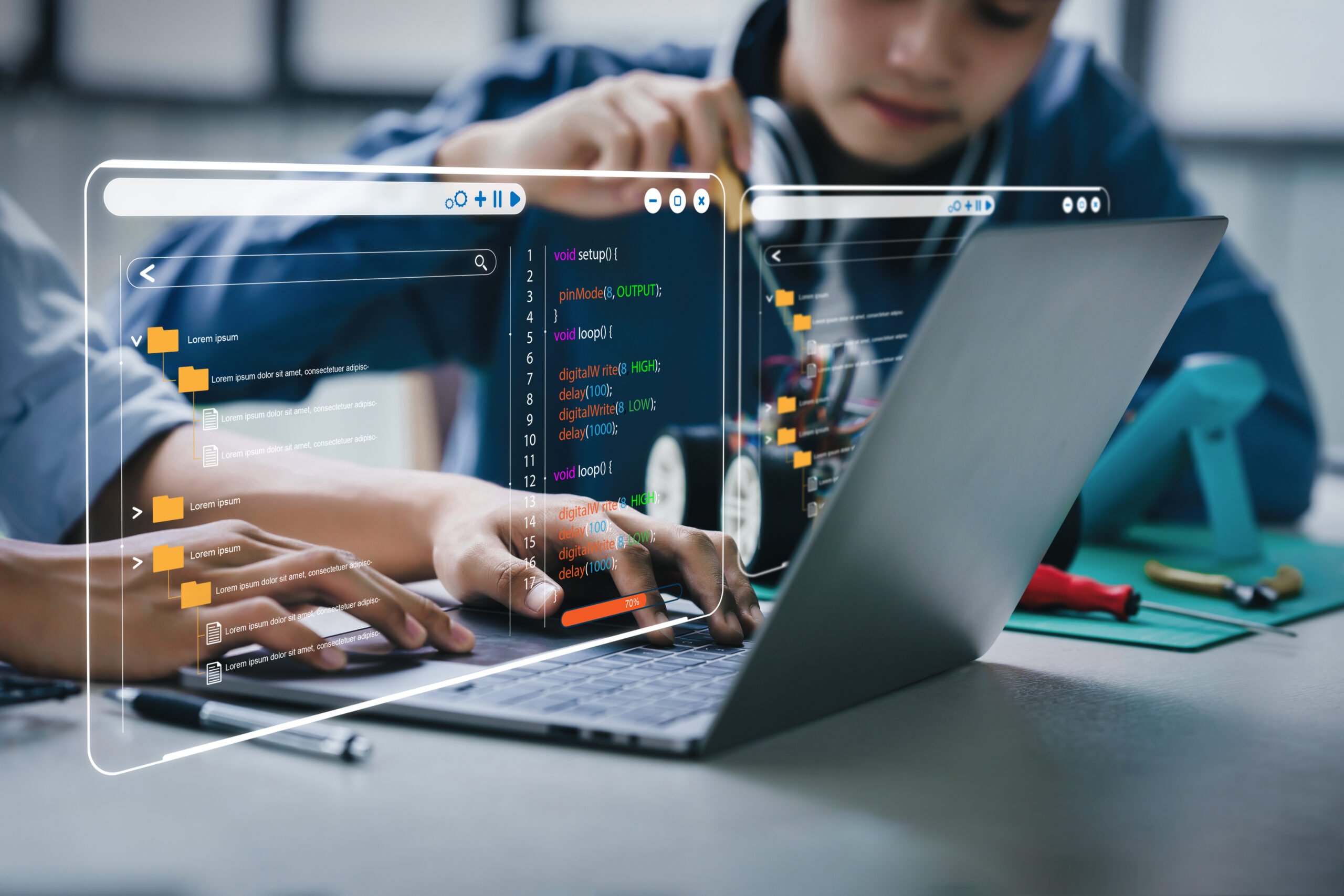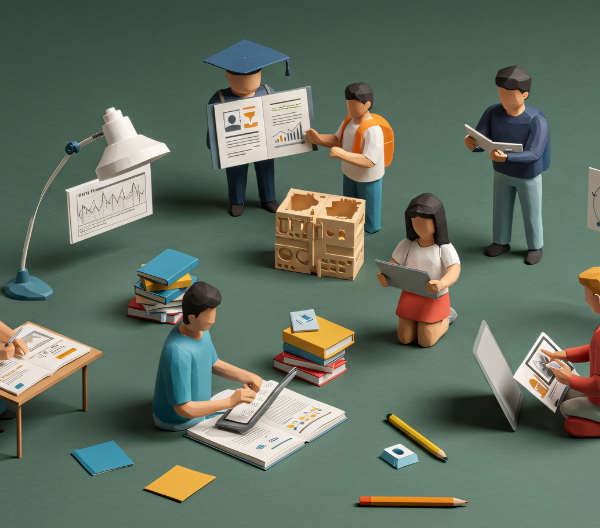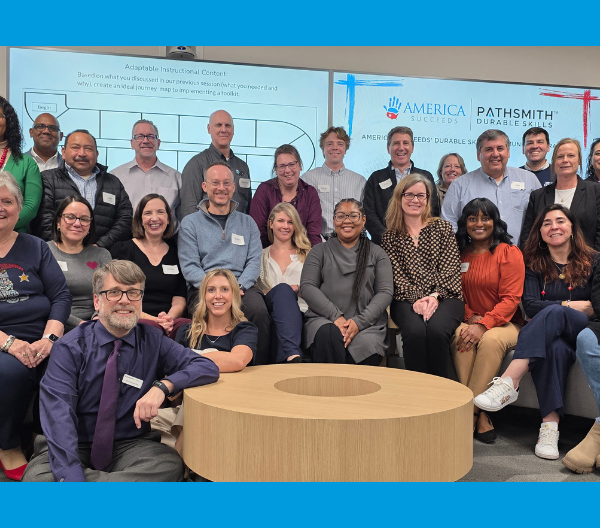Employees want and need training in the skills that will future-proof their careers.
By David McCool

David McCool is president and CEO of Muzzy Lane, creators of the SkillBuild line of durable skills courses. He is a member of the Higher Learning Commission’s Credential Lab Quality Assurance Design Team, and under his leadership, Muzzy Lane won the 1EdTech™’s 2022 Gold Learning Impact Award. A pioneer in the field of role-playing assessments and a thought leader in the skill-based economy, McCool was previously involved in the founding of two successful startups. He graduated from MIT with a BSEE. He can be reached at dave@muzzylane.com or via LinkedIn.
Why should companies offer employees the opportunity to learn new skills and earn credentials that validate those skills? First of all, upskilling plays a key role in employee retention. According to a recent article in Forbes, “If their employers do not keep pace with the demand to provide training, learning, and development opportunities, approximately 41% of employees have plans to leave their employers next year.” That’s a sobering figure if you take into account that replacing an employee who leaves because they don’t see opportunities for upskilling can cost your company as much as twice their annual salary.
And then there’s the growing presence of AI in the workplace, which is creating uncertainty about what tasks can be automated and what must be done by a human. In this time of transition, offering credentials in durable skills such as critical thinking, creative problem-solving, and collaboration is a way to upskill your employees in an intentional, rigorous way that satisfies their need to learn — and makes them more valuable to your company.
AI and Critical Thinking
Since the Luddites smashed mechanical looms in the early 1800s, technology and humanity have sometimes had a contentious workplace relationship. Nvidia CEO, Jensen Huang, made headlines earlier this year by discouraging students from learning to code because, he asserted, AI will soon take over that role entirely.
Although that pronouncement may seem like a death knell for human programmers, it’s not that simple. Generative AI tools may excel at quickly writing code, but they don’t have a human value set to guide them in knowing what is good, bad, or appropriate for a given situation. Instead, AI is being trained on social media, where people are anonymized and vicious toward one another. It’s vacuuming up full Reddit threads, so it’s like we’re administering arsenic to the system and then asking it to be civil and courteous. An article on Tech Radar emphasizing that AI requires principled human guidance quoted Huang as saying, “Upskilling is the way forward, and that upskilling will provide the knowledge of how and when to use AI programming.”
I believe Huang’s prediction of AI taking over coding is only partly right. The programmers of the future may not sit down to a blank text box and start typing code, but they will use their critical thinking skills to tell AI what code to write, and edit what AI delivers to them. The less code they write, the more project-management duties they can take on, requiring durable skills such as creative problem-solving.
How Creative Problem-Solving Makes Every Employee an Entrepreneur
Upskilling to adjust to an ever-changing technological landscape should focus on what humans can do that AI can’t. So, while employees generally need to have the skill to edit what AI produces, they also need creative problem-solving skills and an understanding of what makes people tick.
These skills will be essential when, for example, a product manager says, “Here’s what we want, and here’s what we should make for the market.” Employees with creative problem-solving skills will be ready to tackle the challenge by pooling together information from AI tools and then using their human brains to develop a new product.
In today’s white-collar workplace, every employee is an entrepreneur. No one has a rote job anymore where they walk through an assigned task without thinking about it. Everyone has to be creative and think deeply about what they’re doing because everyone’s a creator. Providing opportunities for employees to hone their creative problem-solving skills will lead to more creative and innovative products and services.
Collaboration with Humans and Machines
AI, by contrast, is not a creator. When humans come up with ideas, they naturally combine what they know with their own creative ideas, which means they’re constantly creating something new. AI as it exists today can only ingest data and then regurgitate it, so if it doesn’t have a human collaborator, it’s unable to spark any new ideas.
The more companies lean on AI to create content without human input, the less AI will learn. In the most extreme scenario, if AI were to create all the content on a given topic based only on what it already knows, it would never learn anything new and progress would stop.
Unless humans collaborate, ideate, make inductive leaps, and bring new ideas to the world, generative AI will keep serving up the same ideas over and over again. That’s why upskilling should encourage collaboration between humans and AI. Ideally, AI will carry out the “grunt work,” freeing humans to do the out-of-the-box thinking. Busy employees may not naturally fall into this collaborative pattern with AI, which is why intentional, credentialed upskilling is essential.
How Credentials Future-Proof Careers
Durable skill credentials are a critical ingredient in the success or failure of individual hires. You cannot rely on certain hard skill training, college, or graduate degree to translate into other human skills, and employees want tangible proof that they have mastered the durable skills that will future-proof their careers. By prioritizing these skills in upskilling initiatives, organizations can cultivate a more resilient, adaptable, and high-performing workforce that is ready to meet the challenges of the future.
Join us in showcasing practical applications of durable skills! Submit your work to be featured on our blog.




